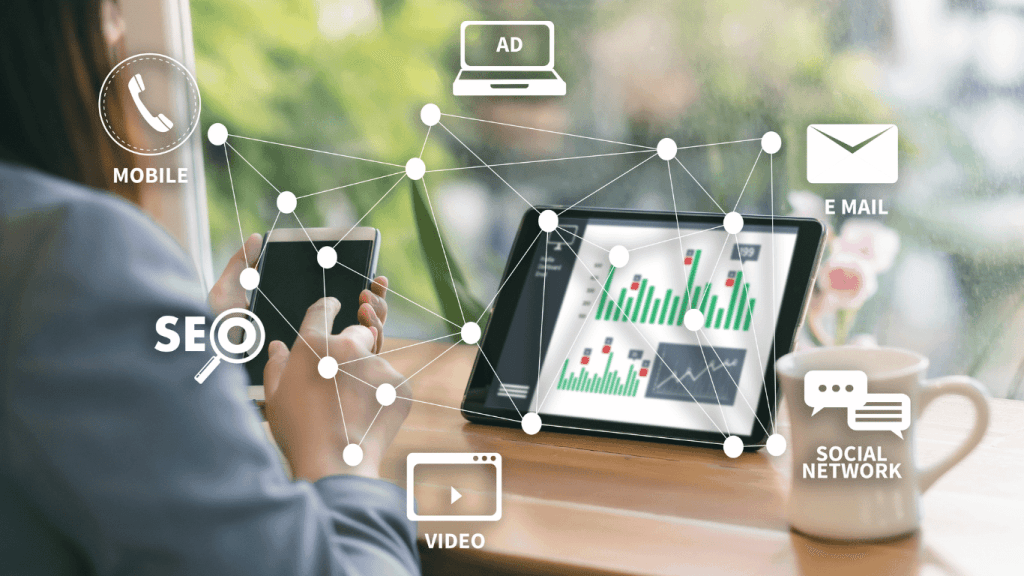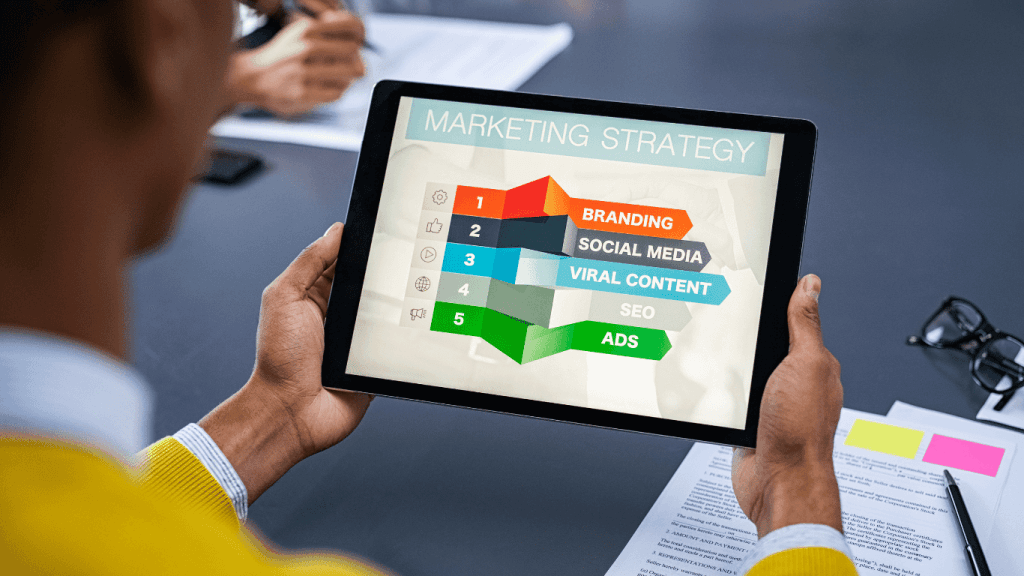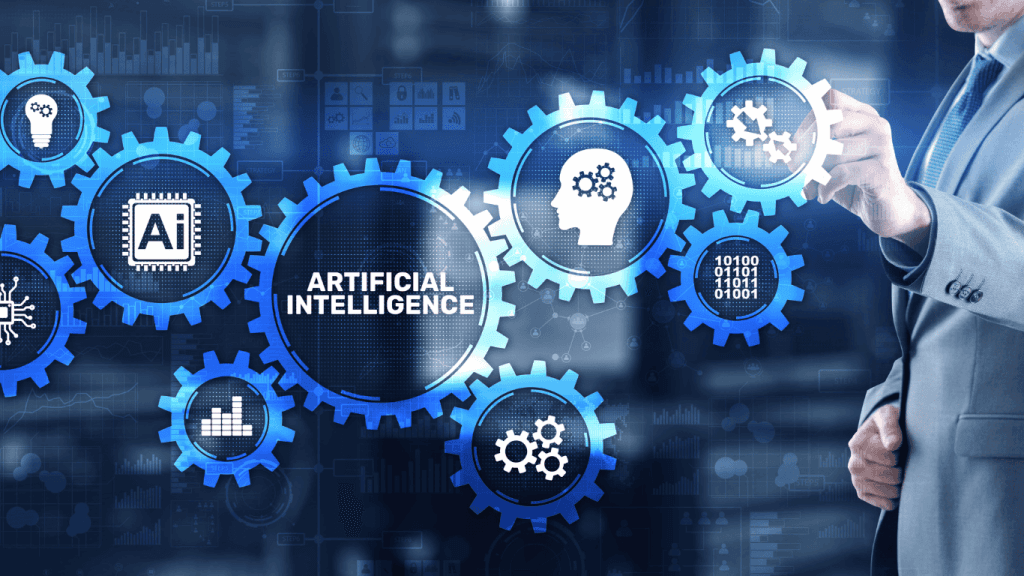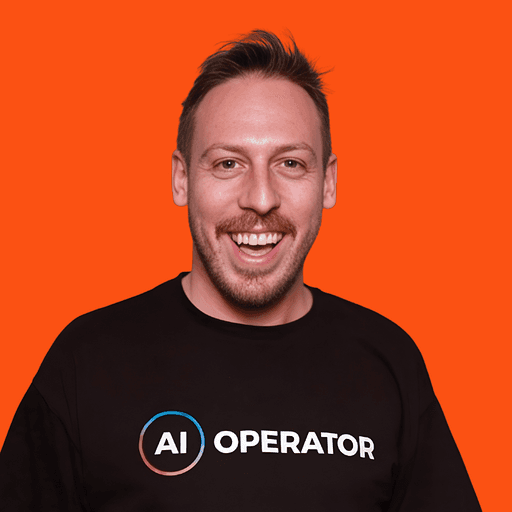AI for Marketing: Unraveling the Possibilities for Your Business
Jul 24, 2023
Artificial Intelligence (AI) for marketing is a game-changer for businesses everywhere. In recent years, AI for marketing has rapidly gained momentum, and businesses are increasingly recognizing its immense potential in shaping successful marketing strategies.
Just like how AI for sales is transforming the way that sales teams work, AI for marketing is no exception.
According to industry experts, AI is set to become a driving force behind marketing efforts. Its influence is projected to soar even higher in the coming years. In fact, studies show that more than 80% of all marketing companies and experts are already integrating some form of AI into their online marketing strategies.
In this guide, we’ll discuss the essential information you need to know about AI marketing:
AI marketing in a nutshell
the benefits of AI for marketing teams
strategies to maximize AI for marketing campaigns and strategies
AI-powered tools that support marketing initiatives
ethical issues to watch out for when using AI software for marketing
the future of AI in marketing
AI for marketing in a nutshell

Artificial Intelligence has become more than just a buzzword in the marketing world. Currently, it’s already a transformative force that has marketers and businesses buzzing with excitement. In fact, AI marketing is poised to be responsible for 45% of the total global economy by 2030.
AI refers to technologies that enable machines to simulate human intelligence and perform tasks that typically require human cognitive abilities. In the context of many digital marketing campaigns, AI takes the vast amount of available data and transforms it into valuable insights for data analysis, customer insights, and campaign optimization. Artificial intelligence enables marketing teams to efficiently conduct data-driven digital marketing initiatives and marketing campaigns.
Here are some recent numbers that give an overview of the state of AI adoption in the marketing industry:
Compared to other departments, marketing and sales teams prioritize AI and machine learning more. (Semrush)
By 2025, the global AI market in marketing is estimated to reach more than $40 billion. (Unite)
51% of eCommerce companies leverage AI because it helps them provide seamless user experiences. (Semrush)
Sales teams that use AI technology for lead generation efforts increase productivity by 50%. (McKinsey)
64% of business owners believe that AI improves customer relationships. (Forbes Advisor)
4 benefits of AI for marketing campaigns and customer insights
Embracing AI technology in marketing opens up a world of possibilities and tangible benefits. AI plays a pivotal role in shaping the changing marketing landscape.
From understanding customer behavior to automating repetitive tasks, AI empowers marketers to make data-driven decisions and deliver personalized experiences at scale. Here are some key aspects where AI leaves its mark:
Hyper-personalization for maximum impact
One-size-fits-all marketing is a thing of the past. Marketing teams of today know that personalization drives an increase in revenue and growth.
An AI marketing tool can make sense of vast amounts of data, allowing marketers to identify individual preferences, behaviors, and buying patterns. As a result, businesses can now create customized campaigns with tailored content and targeted recommendations that the target audience will see at the right time.
With 92% of businesses already using AI for personalization, it’s clear that marketing teams are already recognizing this benefit.
Data-driven decision-making
AI thrives on data, and so do marketers. AI enables data-driven decision-making, empowering marketers with actionable insights to optimize campaigns and allocate resources more effectively.
One of the key benefits of AI-driven data analytics is predictive customer behavior. Understanding customer behavior is key to driving successful marketing campaigns. AI’s predictive analytics can forecast customer actions, such as churn, purchase intent, or engagement rates, allowing marketers to proactively respond with tailored strategies.
Efficient and streamlined processes
AI streamlines labor-intensive tasks, freeing up valuable time for marketers to focus on creative work and strategic initiatives. Automation also reduces human error, ensuring more accurate and efficient processes.
AI marketing tools can automate repetitive tasks: email nurture campaigns, audience segmentation according to certain criteria, social media scheduling, and ad targeting. Currently, 77% of marketers report that they are already using some form of AI automation. And in the next five years, 74% of marketers expect that more than one-fourth of their tasks will be automated.
Agility, adaptability, and scalability
At the speed that marketing trends are evolving, it can be challenging to keep up. By adapting to changing market dynamics and customer preferences, AI ensures your marketing efforts remain relevant and effective.
How to use AI for marketing in 4 ways

Now that we understand the myriad benefits of AI for digital marketing efforts, it’s time to explore how to effectively harness its power. Here are 4 key areas where AI can make a significant impact and drive your marketing efforts to new heights.
AI-powered personalization
Personalization is no longer a luxury; it’s a necessity for successful and effective marketing strategies. Here’s how you can utilize AI for hyper-personalization in your marketing strategy.
Data-driven customer segmentation: AI analyzes customer data, grouping individuals with similar characteristics and behaviors into segments. This allows you to create highly targeted campaigns that resonate with each segment’s unique needs and interests.
Dynamic content customization: With AI, your content can adapt in real time based on customer interactions and behavior. Personalized product recommendations, email subject lines, and website content all contribute to a tailored customer journey.
Predictive personalization: AI’s predictive capabilities enable you to anticipate customer preferences. This will allow you to proactively deliver personalized offers and suggestions, which in turn will help increase the chances of conversion.
Enhance customer engagement
Customer engagement is the heart of successful marketing and AI is the secret sauce to boost customer engagement and create meaningful interactions. By employing AI-driven solutions, you can deliver seamless and relevant experiences that keep customers coming back for more. Some of the solutions you can explore are:
Chatbots and virtual assistants: The chatbot market is estimated to reach $1.25 billion by 2025. AI-powered chatbots are available 24/7, responding to customer queries in real-time and offering instant support. These virtual assistants provide personalized guidance, making customers feel heard and valued.
Behavioral analysis: AI can track customer behavior across various touchpoints, from website visits to social media interactions. By understanding how customers engage with your brand, you can optimize engagement strategies accordingly.
Sentiment analysis and social media listening: AI can gauge customer sentiment from social media posts, reviews, and other online interactions. Identifying positive or negative sentiments helps you respond appropriately, fostering stronger connections with your audience.
AI essentially allows businesses to interact with their audience in ways that feel natural and human, even when powered by machines.
In fact, the future of AI and CX is very much a collaboration between human agents and AI tools.
Uncover actionable insights
AI’s analytical prowess goes beyond customer interactions. It digs deep into data to extract valuable insights that empower data-driven decision-making:
Data mining and pattern recognition: AI can sift through massive datasets to uncover hidden patterns and trends that human analysis might miss. This provides a deeper understanding of customer preferences and market trends.
Predictive analytics: AI can forecast future trends and outcomes based on historical and high quality data. This predictive capability assists in optimizing marketing strategies and making informed choices.
Customer journey mapping: By analyzing customer touchpoints, AI helps map the customer journey, highlighting areas for improvement and opportunities to enhance customer satisfaction and retention.
AI-driven content marketing
Content is king, but AI can actually be your creative advisor, copywriter, or even brainstorming partner. From generating attention-grabbing headlines to predicting content performance, AI streamlines your content marketing efforts.
GPT-3 by OpenAI is one of the most powerful language generators so far—with 175 billion parameters. As such, it has become a widely popular tool that assists marketers in writing. Of course, it has its limitations which is why human writers are still very much needed.
Other ways that AI can elevate your content game:
Content creation: AI can generate compelling content, including blog posts, social media captions, and even video scripts. This streamlines content creation and frees up creative resources.
Content optimization: AI tools analyze content performance and audience engagement, offering valuable insights to fine-tune content for maximum impact.
Personalized content delivery: AI can recommend relevant content to individual customers based on their interests and behavior, increasing engagement and building loyalty.
5 AI tools for marketing to add to your tech stack

The super popular ChatGPT is just one of many artificial intelligence tools out there. For those looking for the next AI marketing tool to add to your stack, here are five recommended ones:
Social Sense AI (for leveling up your social media game)
Social Sense AI creates AI-generated social media content in seconds, which can greatly streamline and optimize your social strategy. The tool uses OpenAI’s ChatGPT’s machine learning algorithms to generate captions, headlines, posts, tweets, and ideas based on prompts.
You just need to provide a customized prompt using Social Sense AI’s form. This is then processed by the AI model to generate content based on your input.
Manychat (for custom chatbots)
Definitely one of the most well-known chatbot providers, Manychat is customizable and can be used even without any coding knowledge.
Create custom chatbots and conversation flows for Facebook Messenger, Instagram, WhatsApp, and SMS. Additionally, Manychat integrates with a lot of widely-used apps—which means it will blend in nicely with your current tools.
Optimove (for omnichannel customer-led marketing campaigns)
As a customer data platform with AI functions, Optimove collects data from different platforms and compiles all of the information and data in one dashboard. With this information on hand, marketers can better strategize their next moves.
Other features of Optimove include:
running campaigns on predefined channels
using predictive segmentation to serve hyper-targeted, activity-triggering campaigns
implementing trigger-based campaigns and actions
automatically dividing campaign recipients into test and control groups
self-optimizing campaigns
Smartly.io
For businesses that would like to win at digital advertising, Smartly.io is well worth it. It is essentially a performance marketing tool that aids marketers in strategizing, creating, implementing, and monitoring their ad campaigns across multiple channels.
Some examples of what you can do with Smartly:
cross-channel planning and execution via a centralized platform
integrate third-party sources to uncover even more essential data points
automate campaign management across various platforms in one workflow
Brand24
Brand24 is an AI-powred social listening tool that helps marketers with managing and optimizing their online reputation. The AI crawls the web and tracks mentions of your brand in social media, news, blogs, videos, and more.
That way, your marketing teams get an idea of how the brand is perceived. Teams can also evaluate how marketing efforts are going and realign them if necessary.
10 things to watch out for when using AI for marketing

As powerful and promising as AI is for marketing, it’s essential to approach its implementation with a discerning eye. While AI can be a game-changer, being aware of potential challenges will ensure a smooth and successful integration.
Here are 10 key things to watch out for when using AI for marketing:
1. Data privacy and security concerns
AI relies heavily on data, and with great data comes great responsibility. Ensure that customer data is handled with utmost care and complies with relevant privacy regulations. Protecting sensitive information and maintaining data security is critical to building trust with your customers.
2. Ethical AI use
AI-driven decisions can impact customers’ lives, and ethical considerations must be a priority. Avoid using AI in ways that could lead to discriminatory practices or harm your audience. Transparently communicate the use of AI and assure customers that their data is being used responsibly. When using AI for content creation or writing, humans must practice due diligence and verify any information or content generated by the AI, specifically statistics, case studies, and any mention of historical data.
3. Over-reliance on automation
It’s true that AI automation can boost efficiency. However, marketing teams must avoid being over-dependent on it at the expense of sacrificing the quality that comes with the human touch. Balancing automation with human intervention ensures a personalized and empathetic customer experience.
4. Lack of human oversight
AI is impressive, but it’s not infallible. Do remember that AI-generated results are only as good as the prompts it receives. Maintain human oversight and be prepared to intervene when AI-generated decisions require human judgment or fine-tuning. While some tasks can be handed off to AI, most still need a human supervisor to monitor the outcome.
5. Data quality and bias
AI learns from data, and biased or inaccurate data can lead to biased AI outcomes. Regularly assess the quality and integrity of your data to avoid biased predictions or skewed results. It’s important to practice data hygiene internally.
6. Overwhelming your audience
Personalization is fantastic, but too much of a good thing can be overwhelming. Because of the efficiency that AI brings, it’s easy to get carried away. Be mindful of how much personal data you collect and use to create a tailored experience that doesn’t cross the line into intrusion.
7. Integration challenges
Integrating AI into existing marketing infrastructure may present challenges. Ensure compatibility and seamless integration with your current tools and processes to avoid disruptions. Integration with technology is not the only thing to watch out for. When integrating AI and new tools into your marketing processes, your team needs to be prepared for this transition.
8. Falling behind competitors
AI technologies evolve rapidly, and staying ahead requires continuous learning. Invest in ongoing training and education to keep your team up-to-date with the latest AI advancements and best practices.
9. Cost considerations
AI marketing technologies can be powerful but may come with a significant investment. Evaluate the costs and potential returns carefully to ensure it aligns with your marketing goals and budget.
10. Expecting too much too soon
AI is transformative, but it’s not a magic wand. Set realistic expectations and recognize that AI’s impact may take time to manifest fully. Be patient, measure results, and iterate your AI-driven strategies as needed.
The future of AI in marketing

A huge percentage (79%) of marketing professionals think that AI is one of the technologies that will greatly influence the future of marketing.
As AI technologies continue to advance, marketers can expect a host of groundbreaking developments that will reshape the way they engage with customers and drive business growth.
So what’s in store for the future of AI and AI marketing strategy?
AI-Generated content revolution: AI-generated content will become more sophisticated and prevalent. From personalized blog posts to video scripts, AI will collaborate with human creators, streamlining content creation and amplifying creativity.
Hyper-targeted marketing: AI’s predictive capabilities will refine audience targeting to an extraordinary degree. Marketers will deliver hyper-targeted campaigns that anticipate customer needs, resulting in higher conversion rates and customer satisfaction.
Voice search and AI assistants: With the rise of voice search and AI marketing assistants, marketers will need to optimize their content for voice queries. The focus will shift to delivering concise, conversational responses that align with customers’ natural language.
Augmented Reality (AR) experiences: AI-driven AR will enable immersive and interactive brand experiences, allowing customers to visualize products in their environment before making a purchase decision.
Customer journey automation: AI will streamline the entire customer journey, automating touchpoints, and delivering personalized experiences at every stage, from awareness to post-purchase support.
How can marketers prepare for the AI-powered future?

As AI continues to revolutionize marketing, proactive preparation is key to staying ahead of the curve. Here’s how marketers can embrace the AI-powered future:
Stay educated and curious. Embrace a learning mindset and keep up with the latest AI developments and trends in marketing. Attend industry events, webinars, and workshops to gain insights into AI’s potential applications.
Invest in AI talent. Build a team with expertise in AI and data science to maximize the benefits of AI marketing. A skilled AI team will help implement and own successful campaigns and optimize AI solutions effectively.
Ensure your data is accurate, relevant, and integrated across platforms. High-quality data is the fuel that powers AI algorithms and drives meaningful insights.
Test and iterate. Adopt a culture and habit of experimentation. You can do this by testing AI-driven strategies, measure results, and iterate accordingly. Embrace failure as a stepping stone to success in the dynamic AI landscape.
Focus on customer-centricity. While AI brings automation, it’s important to never lose sight of the human element. Prioritize customer experience, ensuring AI-enhanced interactions remain personalized and empathetic.
Establish clear guidelines for ethical AI use within your organization. Consider the implications of AI-driven decisions on customers and ensure compliance with relevant regulations.
Collaborate with AI. Embrace AI as a creative collaborator, not just a tool that you can hand off tasks to. Allow AI to inspire and assist your content creation, while retaining human creativity and emotional connection.
Prepare for the rise of voice search by optimizing your content for voice-based queries. Adopt a conversational tone and structure your content to answer customer questions effectively.
Anticipate customer needs. Use AI-driven analytics to predict customer preferences and anticipate their needs. Deliver proactive and personalized solutions before customers even realize they need them.
Embrace change and flexibility. The AI-powered future is dynamic and ever-evolving. Embrace change, be flexible in adapting your strategies, and leverage AI technologies to continuously innovate and improve.
It’s time to embrace AI marketing for unprecedented growth

As we peer into the future, we envision an AI-driven marketing realm where personalized content, voice assistants, and augmented reality weave seamlessly into the customer journey.
But remember, while AI is a powerful ally, it is your human creativity, empathy, and understanding that will continue to set your brand apart. In this AI-powered era, a harmonious collaboration between human ingenuity and machine intelligence will be the key to success.
Now is the time to take your marketing game to the next level! Whether you’re seeking expert guidance on integrating AI into your marketing strategy or exploring the latest AI-powered tools, AI Operator is here to support you on your journey. Our team of AI experts is eager to assist you in navigating the AI-powered landscape and empowering your brand to thrive in the dynamic world of marketing.
Reach out to AI Operator today and unlock the true potential of AI for your marketing success.











